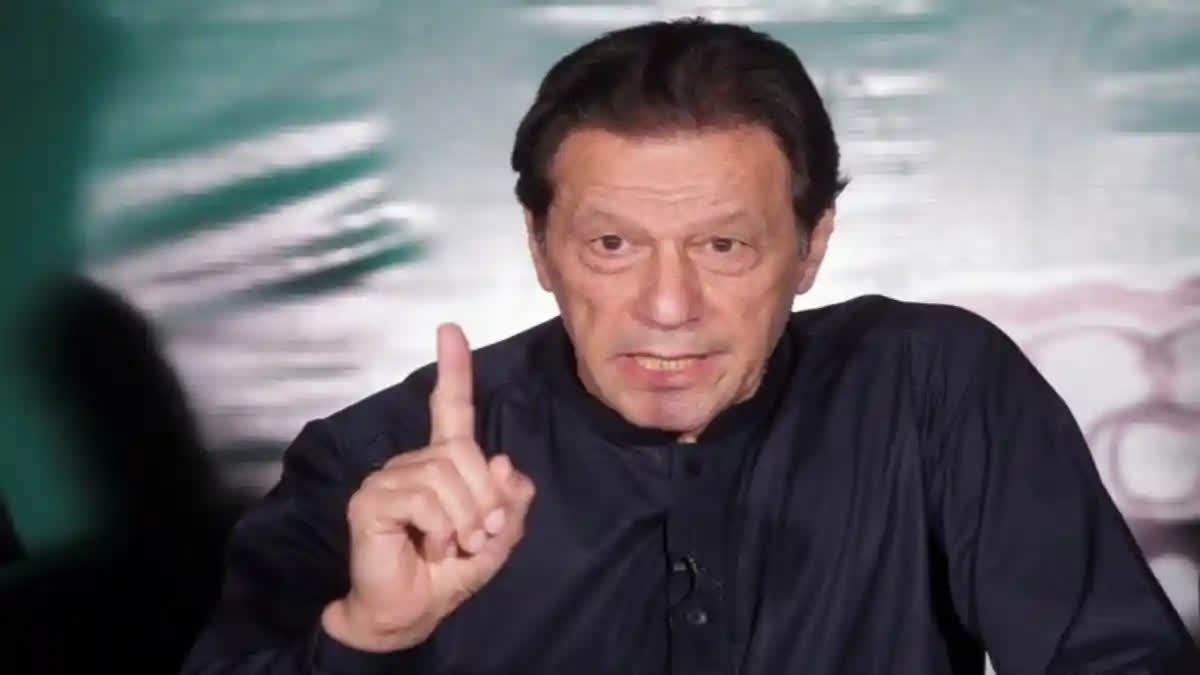New Delhi: In what is the latest development in the swiftly changing scenarios for government formation in Pakistan after the February 8 polls, jailed former Prime Minister Imran Khan has given the go-ahead to his Pakistan Tehreek-e-Insaaf (PTI)-backed candidates to form a coalition government with the Majlis Wahdat-e-Muslimeen (MWM) party. This was confirmed by PTI spokesperson Raoof Hassan on Tuesday.
“Those who have emerged victorious in the polls should be allowed to form the government as it is their right (to do so),” Hassan was quoted as saying while addressing the media to convey Khan’s message. “I have been given the mandate (by Khan) to approach all political parties to continue the party's political struggle for democratic values except the PML-N, MQM-P and the PPP.”
The PTI-backed independent candidates emerged as the largest entity in the final results declared after days of delay since polling was held on February 8. According to the figures released by the Election Commission of Pakistan, PTI-backed independents won 92 of the 266 directly-elected seats in the National Assembly, while former Prime Minister Nawaz Sharif’s Pakistan Muslim League-Nawaz (PML-N) won 75 seats and the Pakistan People’s Party (PPP) led by Bilawal Bhutto Zardari, the son of former Prime Minister Benazir Bhutto and former President Asif Ali Zardari, won 54. The MWM, with which the PTI-backed independents have been given the green signal to form a coalition government, has won only one seat.
So, what is the MWM and why has it suddenly emerged as a key player in the government formation process in Pakistan?
The MWM is a political and religious party in Pakistan, primarily dedicated to actively promoting the revival of Islam and fostering the unity and stability of the nation. The party focuses on addressing the oppression faced by Pakistan's Shia community, fostering positive relations with the Sunni Muslim community, promoting political and religious awareness among Muslims, and revitalising the teachings of the Quran within society.
The MWM’s overarching agenda envisions the establishment of a religious Islamic republic that prioritises the well-being of individuals, with a strong emphasis on Muslim unity achieved through collaborative community efforts. The party aspires to guide Pakistan towards political stability, social harmony and economic prosperity, catering to the needs of all religious, ethnic and racial communities.
The MWM supported the PTI in the 2013 Pakistani general elections and the 2024 Pakistani general elections and it is the first religio-political organisation supported by Imran Khan and his party. Why the MWM has emerged as a key player in the government formation process because the 92 victorious independent candidates have been barred from rejoining the PTI after the party was denied the cricket bat election symbol by the country’s poll panel. However, they are allowed to join other political parties and the MWM has come as an option for them.
Together, the PTI-backed independents and the MWM have 93 seats in total of the 266 elected seats. To establish a government, a party or coalition must secure a straightforward majority of 134 seats out of the 266 contested seats in the National Assembly. This coalition can be composed of various parties or may include independent candidates, who emerged victorious. Independents have the option to either formally align themselves with a party seeking to form a government or forge an alliance while retaining their distinct individual identity.
